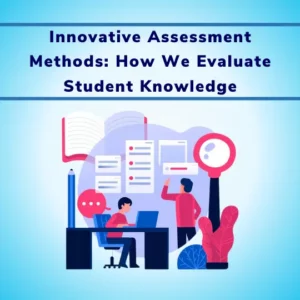Article Contents
Breaking Free from Traditional Exams
Have you ever wondered about the shortcomings of conventional exams?
Traditional examination or assessment focuses on definitions, memorizaiton. It fall short in evaluating practical skills, adaptability, or even offering tailored feedback.
But what if there was a way to transcend these limits?
Traditional methodology needs a transformative shift to assess students.
Traditional exams have been the cornerstone of education for years, but the shortcomings of pen-and-paper tests are now evident. These static assessments, limited to traditional formats, fail to capture the multifaceted abilities of students.
Practical skills, adaptability, and the crucial element of personalized feedback are neglected in this assessment system. A transformative shift in assessment methodologies is overdue.
To authentically evaluate the diverse capabilities of each student, we must break free from the constraints of traditional exams. Embracing innovative approaches, such as Generative AI, offers a way forward. It promises assessments that are dynamic, adaptive, and truly reflective of students’ real-world competencies.
The Online Examination Shift
In the era of digital transformation, the educational landscape is undergoing a profound shift from traditional exams to online assessments. This evolution is propelled by the global embrace of technology, enabling a seamless transition from pen-and-paper to digital evaluations.
Online assessments bring with them the advantage of customization, allowing for tailored question papers aligned with specific syllabi and varying difficulty levels.
This adaptability ensures a more personalized evaluation of students’ knowledge and capabilities. However, beyond this notable transition, a more groundbreaking transformation looms on the horizon – the integration of Generative AI.

This cutting-edge technology promises to revolutionize assessments further, introducing dynamic and adaptive content that goes beyond the limitations of static online exams.
By 2024, more than 47% of learning management systems (LMS) are expected to use AI, enabling educators to provide personalized and enhanced learning experiences.
Enter Generative AI: A Shift of Assessment Approach
Picture an assessment process that transcends the confines of static questions, immersing students in dynamic and interactive scenarios. This visionary transformation is embodied by Generative AI, standing at the vanguard of a revolutionary shift in how we evaluate knowledge and skills.
Unlike traditional assessments, Generative AI doesn’t merely inquire; it orchestrates immersive experiences, challenging students with adaptive content.
It’s akin to having a wise examiner, one that not only gauges responses but evolves the examination in real time based on each student’s unique answers.
Traditional exams cater to inflexible structures. However, this advanced system introduces a dynamic and adaptable evaluation process that aligns seamlessly with the intricate demands of real-world problem-solving and critical thinking.
Udemy uses ChatGPT to create language learning modules for teachers. Duolingo employs AI, including ChatGPT, for its English proficiency test, DET, which involves generating text passages and assisting human proctors in detecting suspicious behaviour.
Continuous Interaction and Real-Time Evaluation
- Continuous Interaction: Generative AI fosters continuous interaction in assessments, breaking away from the traditional exam format.
- Conversational Format: Unlike conventional exams, this innovative technology employs a conversational format, extending the dialogue beyond posed questions.
- Dynamic Situations: Generative AI presents dynamic situations based on candidates’ responses, ensuring a more engaging and real-world assessment.
- Follow-Up Mechanism: The technology follows up based on candidates’ responses, adapting the assessment process dynamically.
- Real-Time Evaluation: The result is a comprehensive real-time evaluation that surpasses the limitations of static answers.
- Holistic Assessment: This dynamic approach assesses not only factual knowledge but also communication, understanding, and analytical skills.
- Multifaceted Competencies: Generative AI ensures the assessment aligns with the multifaceted competencies demanded in real-world scenarios.
- Innovation in Assessment: This approach propels assessments into a new dimension, embracing innovation for a more comprehensive evaluation process.
Case Study Analysis: A New Frontier
In the traditional realm of MBA education, case studies have long been a cornerstone for evaluating students. However, Generative AI emerges as a transformative force, catapulting case study analysis into a new frontier.
Unlike conventional assessments that often focus on memorization, Generative AI introduces a paradigm shift. It goes beyond the surface, delving deep into the analytical prowess, strategic thinking, and problem-solving skills of MBA candidates.
Generative AI transforms case studies into dynamic scenarios, challenging students to apply their theoretical knowledge in real-time. This innovation breaks the constraints of traditional exams, offering a more authentic reflection of a student’s ability to navigate complex business challenges.
Moreover, the real-time adaptability of Generative AI ensures that each candidate faces a unique set of challenges, mirroring the unpredictability of the business world. The utilization of Generative AI for case study analysis signifies a departure from the conventional and often anticipated format of traditional exams.
Beyond Business: Diverse Applications
Generative AI transcends the boundaries of business studies, making a profound impact across diverse educational domains. In data analytics assessments, candidates engage with dynamic datasets, demonstrating their proficiency in identifying trends, making informed predictions, and optimizing operations.
The scope broadens to encompass writing skills evaluation, where AI critically assesses essays for structural integrity, coherence, grammatical precision, and creativity.
The versatility of Generative AI is further evident in project management simulations, where candidates navigate complex scenarios, honing their strategic and resource management skills.
Moreover, the incorporation of chatbot interactions adds a technological dimension, allowing AI to gauge language proficiency, customer service aptitude, and even psychological traits.
Chatbot Interactions
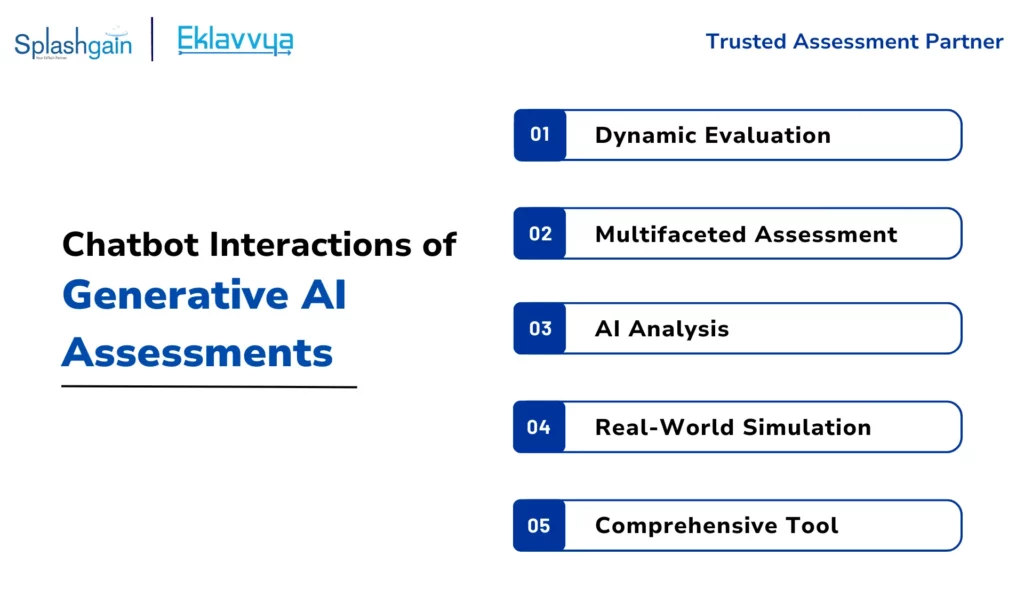
- Dynamic Evaluation: Chatbot interactions bring dynamism to assessments, providing a unique and dynamic platform for candidates.
- Multifaceted Assessment: Candidates engage with chatbots designed to evaluate language proficiency, customer service skills, and even psychological traits.
- AI Analysis: The AI-driven chatbot meticulously analyzes candidates’ responses, scrutinizing linguistic capabilities, communication effectiveness, empathy levels, and problem-solving skills.
- Real-World Simulation: This method simulates real-world scenarios, mirroring the demands of contemporary roles in diverse professional settings.
- Comprehensive Tool: By gauging nuanced aspects like empathy and problem-solving, the assessment becomes a comprehensive tool evaluating both technical expertise and interpersonal/emotional intelligence.
Real-time Coding Assessment
Revolutionizing the evaluation of coding skills, real-time coding assessments introduce a dynamic paradigm. Utilizing a coding platform integrated with AI, this assessment method evaluates a candidate’s code in real-time as they write it, providing instantaneous feedback on critical aspects such as logic, syntax, and efficiency.
Tailored for software development roles, this approach goes beyond traditional coding tests by offering a more interactive and responsive experience. Candidates benefit from immediate insights into their coding proficiency, enabling them to refine their approach on the spot.
The adoption of real-time assessment not only guarantees precise evaluation but also perfectly matches the swift and iterative essence of the software development process. This renders it an indispensable resource for identifying and nurturing exceptional talent in the technology sector.
AI-Powered Case Studies
The advent of AI-powered case studies marks a significant leap in assessing candidates’ problem-solving capabilities. In this innovative approach, candidates are presented with real-world business problems, and an AI system meticulously evaluates their responses. The assessment goes beyond mere correctness, delving into the realms of logic, creativity, and the utilization of data-driven decision-making.
Candidates face a dynamic scenario that mirrors the complexities of the corporate world. The AI not only scrutinizes the accuracy of solutions but also assesses the candidate’s ability to approach the problem with logical reasoning, showcase creativity in proposing solutions, and leverage data to make informed decisions.
This method ensures a holistic evaluation that aligns with the multifaceted demands of modern workplaces, where analytical thinking and innovative problem-solving skills are paramount.
AI-powered case studies thus stand as a cutting-edge tool in identifying individuals who can navigate the intricate challenges of contemporary business environments.
Interactive Dashboards
- Dynamic Approach: Interactive dashboards transform traditional assessments, introducing a dynamic dimension tailored for data analysis roles.
- Real-World Simulation: Candidates engage with an interactive dashboard featuring datasets, simulating real-world scenarios in data-driven roles.
- Active Exploration: This method allows candidates to actively explore and manipulate data, moving beyond static questions.
- Task Variety: Tasks include identifying trends, making predictions, and optimizing operations, reflecting the multifaceted responsibilities of data analysis.
- Technical Proficiency: Interactive dashboards assess candidates’ technical proficiency in handling data, ensuring they can navigate and manipulate datasets effectively.
- Practical Skills Evaluation: The assessment evaluates practical skills in extracting meaningful insights from dynamic datasets, ensuring a holistic evaluation.
- Hands-On Approach: This hands-on evaluation method ensures a comprehensive assessment, measuring candidates’ ability to navigate and interpret real-world data scenarios.
Role-Playing Scenarios
Incorporating artificial intelligence into assessments and role-playing scenarios takes evaluation to a dynamic level. Candidates are immersed in AI-generated scenarios where their choices directly influence the outcome.
This innovative approach improves traditional assessments by not only evaluating technical proficiency but also vital soft skills such as decision-making, leadership, and interpersonal abilities.
The interactive nature of role-playing scenarios offers a glimpse into how candidates approach complex situations, make decisions, and navigate interpersonal dynamics.
This approach offers a detailed picture of a candidate’s flexibility, strategic thinking, and capacity for productive teamwork by mimicking real-world situations.
Role-playing scenarios powered by AI stand as a sophisticated tool for evaluating a candidate’s holistic skill set, ensuring that assessments extend beyond theoretical knowledge to encompass the practical application of skills crucial in diverse professional settings.

Automated Essay Scoring
Revolutionizing the assessment of written communication skills, automated essay scoring leverages the power of artificial intelligence. Candidates are tasked with composing an essay on a designated topic, and AI is employed to objectively evaluate their writing based on multiple criteria.
This includes an analysis of the essay’s structure, assessing its coherence, evaluating grammatical precision, and even gauging the level of creativity exhibited.
Unlike traditional essay grading, which may be subject to human biases, AI-driven scoring ensures an impartial and standardized evaluation. Automated essay scoring is a forward-thinking method that aligns with the demands of modern education, where technological integration enhances the efficiency and objectivity of evaluating essential skills in written expression.
AI-Driven Project Management Simulations
Enter the realm of AI-driven project management simulations, an avant-garde approach to evaluating candidates’ strategic and resource management skills. In this innovative assessment, candidates are immersed in a simulated project management scenario where the AI introduces unexpected events and challenges. The candidate must dynamically adjust their strategy and allocate resources in response to these unpredictable elements.
This method transcends conventional assessments by replicating the complexities of real-world project management. The AI-generated scenarios not only test a candidate’s theoretical knowledge but also look for their adaptability skills.
Additionally, it also measures decision-making understanding and capacity to navigate unforeseen challenges. By introducing dynamic elements, AI-driven simulations ensure that assessments are not limited to a predetermined script. It reflects the dynamic nature of modern workplaces.
The system can come up with a skill-based rating of the individual

Interactive Troubleshooting Tasks
Revolutionizing technical assessments and interactive troubleshooting tasks immerse candidates in scenarios where problem-solving is paramount. Whether diagnosing software bugs, troubleshooting network issues, or resolving customer complaints, candidates must navigate real-world challenges.
This hands-on evaluation surpasses traditional assessments, providing a dynamic platform for candidates to showcase their practical skills.
By replicating authentic problem-solving scenarios, this approach offers a nuanced understanding of a candidate’s ability to diagnose issues, apply technical solutions, and communicate effectively—skills indispensable in roles across various industries where practical problem-solving is integral.
AI-Enhanced Peer Review
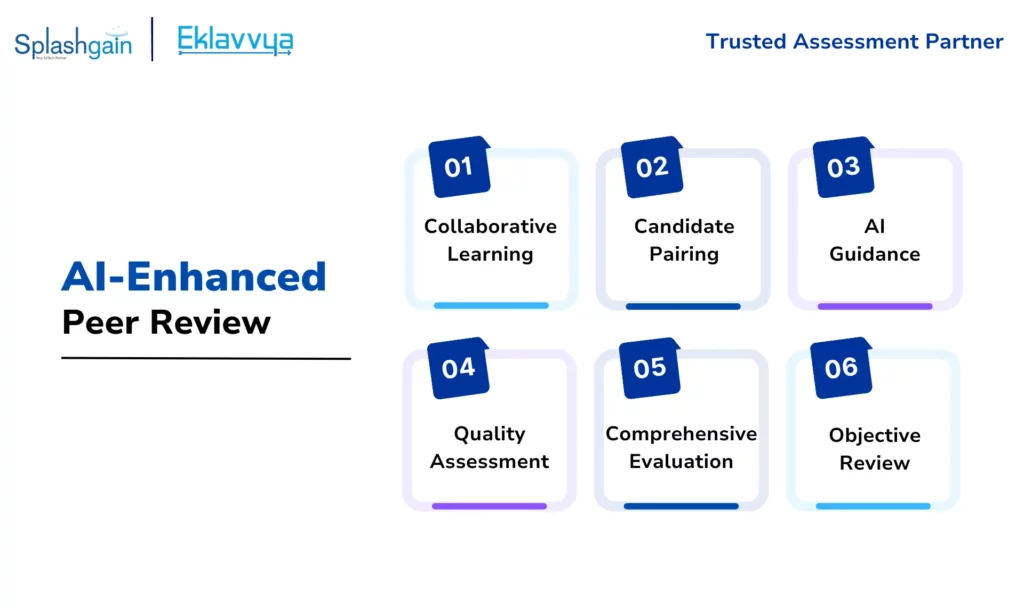
- Collaborative Learning: AI-enhanced peer review introduces a collaborative approach to learning and assessment.
- Candidate Pairing: Candidates are paired to review each other’s work, fostering collaborative interactions.
- AI Guidance: AI guides the peer review process, ensuring structure and coherence in evaluations.
- Quality Assessment: The method assesses the quality of feedback provided by candidates, gauging their understanding and ability to offer constructive criticism.
- Comprehension Evaluation: Beyond individual work, the assessment measures a candidate’s comprehension of the material.
- Objective Review: Incorporating AI ensures objectivity in the review process, leading to standardized evaluations.
Customer Service Simulations
In the realm of assessing customer service skills, simulations set in a virtual environment with AI-powered customers offer a transformative approach. Candidates engage with these simulated interactions, addressing complaints, inquiries, or support requests.
The AI-powered scenarios introduce dynamic elements, reflecting the unpredictable nature of real customer interactions. This immersive assessment ensures a comprehensive evaluation of candidates’ customer service capabilities.
It provides valuable insights into their communication finesse, empathetic approach, and proficiency in resolving issues in a simulated yet realistic setting.
Email Correspondence Test
The email correspondence test introduces a practical evaluation of candidates’ written communication skills in professional scenarios. Candidates respond to a series of emails, simulating interactions with clients or team members. AI takes on the role of an evaluator, analyzing their written communication for tone, clarity, and professionalism.
This assessment not only tests the candidates’ ability to convey information effectively but also assesses their understanding of the appropriate tone. Additionally, it also looks at their capacity to maintain a professional appearance.
By replicating real-world communication challenges, the email correspondence test ensures a nuanced evaluation, aligning assessments with the demands of professional environments where effective written communication is paramount.
Crisis Communication Scenario
In a crisis communication scenario, candidates must navigate and communicate their strategy or solution, whether through a written plan or a simulated press conference. AI plays a crucial role in evaluating candidates based on their ability to convey critical information with clarity and composure.
This assessment not only measures their strategic thinking in crises but also gauges their communication skills under pressure, ensuring they can effectively manage and convey information in high-stakes and challenging circumstances.
Negotiation Simulations
Negotiation simulations introduce a dynamic evaluation where candidates engage in negotiations with an AI character. This simulation assesses candidates on multiple fronts, testing their communication strategies, adaptability, and finesse to achieve mutually beneficial outcomes.
The scenario mirrors real-world negotiations, providing insights into candidates’ ability to navigate complex discussions, think strategically, and pivot their approach when necessary.
By incorporating AI into the simulation, the evaluation becomes more nuanced, ensuring a comprehensive assessment of candidates’ negotiation skills and their capacity to thrive in situations that demand effective communication and collaborative problem-solving.
Language Proficiency Tests
- Comprehensive Evaluation: Language proficiency tests, enhanced by AI, offer a holistic assessment for roles requiring specific linguistic skills.
- Multifaceted Assessment: Candidates undergo evaluations in speaking, listening, reading, and writing in the target language.
- AI Adaptability: AI dynamically adapts scenarios, moving beyond conventional tests to provide a nuanced evaluation.
- Mastery Measurement: The method measures candidates’ mastery of the language, ensuring a comprehensive understanding of linguistic capabilities.
- Contextual Comprehension: AI assesses candidates’ ability to comprehend and articulate in various contexts, reflecting real-world language use.
- Adaptive Testing: Leveraging AI ensures adaptability, offering a precise evaluation aligned with nuanced linguistic demands.
- Applicability: This method caters to diverse professional settings, from multilingual customer service roles to international business environments.
The Duolingo English Test stands out as the sole high-stakes test that fully incorporates AI and machine learning at every stage of its process.
Virtual Press Conference
The virtual press conference immerses candidates in a simulated scenario where they respond to questions from AI-powered journalists.
This is a real-world simulation that assesses candidates on their ability to communicate effectively under pressure. By facing dynamic inquiries and challenges in this virtual environment, candidates showcase their capacity to convey critical information with composure and clarity.
The AI-powered component ensures a dynamic and unpredictable assessment, mirroring the demands of high-pressure situations in which clear and effective communication is essential.
Preparing for the Real World
Beyond academic exercises, these simulations serve as practical rehearsals for real-world challenges. By immersing students in scenarios that replicate professional environments, they gain hands-on experience and develop skills directly applicable to the corporate arena.
Whether navigating complex business problems, engaging with customers, or participating in negotiations, these simulations bridge the gap between theory and practice. Students emerge not just with academic knowledge but with the practical competencies essential for success in diverse professional settings.
Corporate Applications: Hiring with Precision
Generative AI assessments extend their transformative impact on corporate hiring processes. By evaluating communication skills, email etiquette, and project management, these assessments offer a comprehensive perspective on a candidate’s competencies.
Going beyond traditional hiring methods, Generative AI ensures a holistic evaluation, enabling organizations to make informed decisions based on a candidate’s diverse skill set. This revolutionary approach aligns hiring practices with the dynamic demands of the professional landscape, resulting in more precise and effective talent acquisition.
The Future is Personalized
Generative AI assessments stand out for their personalized approach. Utilizing dynamic, scenario-based questions that adapt to each candidate paves the way for truly objective evaluations.
This personalized feedback mechanism ensures that assessments are tailored to individual strengths and weaknesses. As a result, it provides a more accurate reflection of a candidate’s capabilities.
In the future, personalized assessments promise a transformative shift, offering a more nuanced and individualized approach to evaluating skills and competencies.

Get Ready for the Future!
Embracing Generative AI-based assessments isn’t just adopting innovation; it’s stepping into the future of education and hiring. This transformative technology heralds a world where assessments are not only more accurate but also comprehensive and fair.
As organizations and educational institutions increasingly integrate Generative AI, they position themselves at the forefront of a paradigm shift, ushering in an era where evaluations are tailored, dynamic, and reflective of the multifaceted skills needed in our evolving world. Are you ready for this transformative journey?


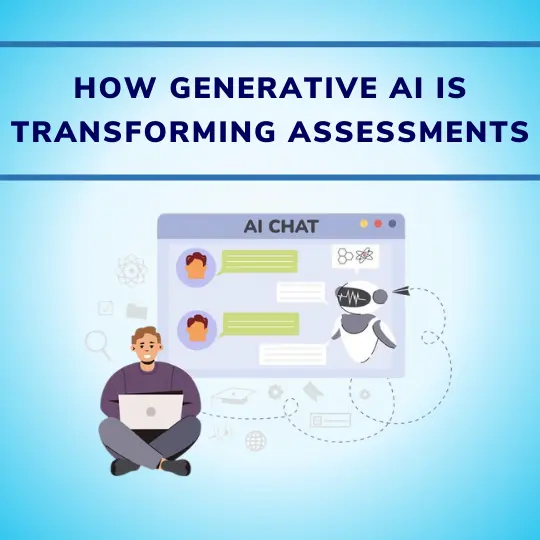
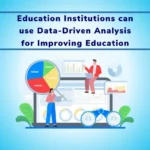
![How Government-Led Exams at 250+ Locations Are Setting New Standards of Integrity [Case Study]](https://www.eklavvya.com/blog/wp-content/uploads/2024/04/Enhancing-Exam-Integrity-Government-Certification-in-250-Locations-150x150.webp)
![Transforming Central Govt. Exams Evaluation: How Onscreen Marking is Leading the Charge [Case Study]](https://www.eklavvya.com/blog/wp-content/uploads/2024/04/How-Onscreen-Marking-Revolutionized-Central-Govt-Exams-Case-Study-1-150x150.webp)
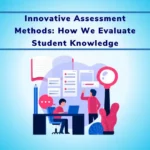


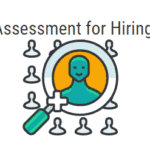
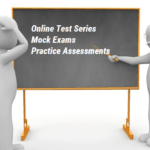








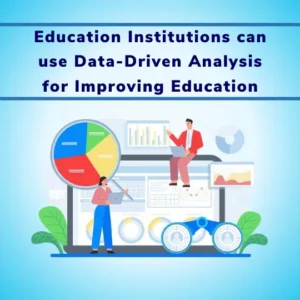
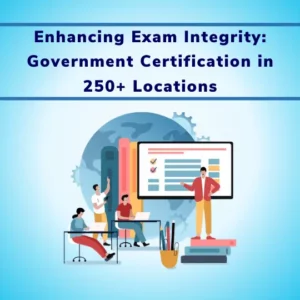
![How Onscreen Marking Revolutionized Central Govt Exams [Case Study]](https://www.eklavvya.com/blog/wp-content/uploads/2024/04/How-Onscreen-Marking-Revolutionized-Central-Govt-Exams-Case-Study-1-300x300.webp)
